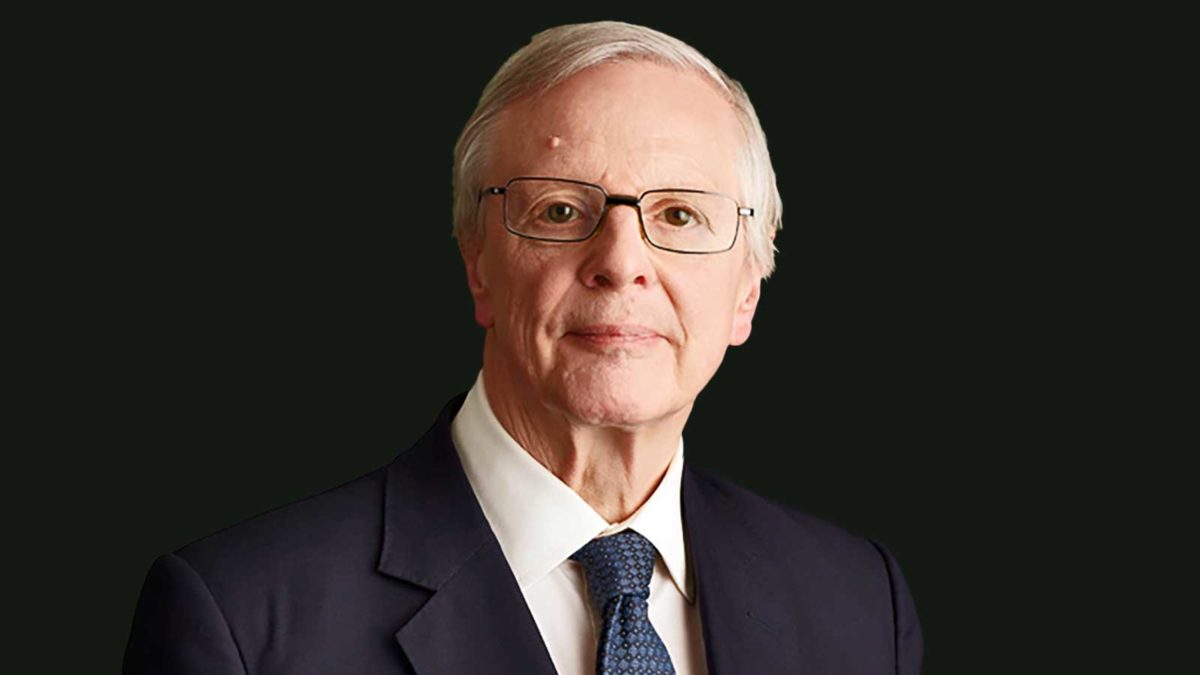Inflation volatility looms in ‘a dangerous time for markets’: Ruffer
The tide is coming in for inflation – but that doesn’t mean there won’t be significant volatility along the way. Investors need to figure out which parts of the economy will catch fire first.
“Views on the direction of inflation can be quite fascinating, but only ‘quite’ since no one really knows what they are talking about,” Jonathan Ruffer, chairman of the eponymous investment manager Ruffer, writes in his latest investment review. “The trick with inflation is not to worry that the completed crossword of clues is beyond one’s grasp: certain riddles can be cracked, and they can sometimes be enough to know what journey one should embark upon.
Founded in 1994 by Ruffer (who has served as its chairman since 2011) alongside Robert Shirley, the now 14th Earl Ferrers, and Jane Tufnell, Ruffer’s focus on private clients means it casts a more sensitive eye towards inflation risk than other shops. But the prevailing view, for much of the last year, is that inflation would be transitory – or, as Ruffer writes, the idea that the inflation rate is “like a goat passing through the anaconda – one serpentine belch, and all will be well again.”
“Initial fears that there might be a return of inflation were met with denial, and then, when inflation arrived, pretty aggressively, it was held to be a goat – the code word was “transitory”. The recent pivot by Jerome Powell, the Chair of the US Federal Reserve, is that transitory is an inappropriate word (which was always the case), and should be discontinued,” Ruffer writes.
“This gives him credence whatever happens – bad inflation (“I warned you of it last December”), or inflation-as-goat (“I always said it was transitory”). Mr Powell has no better idea of what is going on than others – remembering the exchange between F E Smith, a barrister appearing before Lord Darling, who commented testily: “I have heard your evidence Mr Smith, and I must say I am none the wiser”. “No my Lord”, was the reply, “but perhaps better informed”.
Ruffer instead views inflation through the metaphor of a fire in a grate; the transitory phase of inflation is like the newspaper that one uses to fuel the first stage of that fire, and it’s currently burning strongly as the price of goods and assets continue to rise. There’s no guarantee as of yet that the fire will spread further, but if businesses put up prices, will the real kindling above it catch? Once that happens, it’s only a matter of time before the coals on the very top – sustained demand for higher wages – start glowing red hot, at which point “great logs can be consumed.”
“We believe the tide is coming in for inflation, brought about in a series of waves of increasing severity,” Ruffer writes. “It is important to remember what happens on the shoreline as the tide comes in – hour on hour it advances along the coastline, but there are countless moments, between the waves, when the sea appears to retreat. So it will be with inflation: not a straight line, but plenty of volatility headed our way.”
The losers, as usual, will be the little guys – still reeling from the “aspirin-led” short-term solutions to the GFC, which have mostly inflated asset prices to a fantastic degree and put downward pressure on wages as a by-product of insuring that servicing debt remains “troublesome, not destructive.”
“As inflation increases, fanciful explanations need to be stated – and accepted – if investors, and the political system generally, are to pretend there is a pass through the implacable mountains of default/recession (or, possibly, recession/default),” Ruffer writes. “Those for whom the figures don’t add up have little energy to fight back – but their numbers are swelled by the young, who see their parents’ generation sailing off on Swan Hellenic cruises, while they are cooped up in a central chicken shed through Covid.”
In the US, at least, regulators appear to be waking up to the impact that sustained inflation might have on the economy. Jerome Powell used a senate hearing prior to his re-confirmation as chair of the Federal Reserve to warn that if inflation – which now sits at 7 per cent in the US, a 40-year high – were to become entrenched in the economy and public thinking, it “will lead to much tighter monetary policy from us, and it could lead to a recession.”











